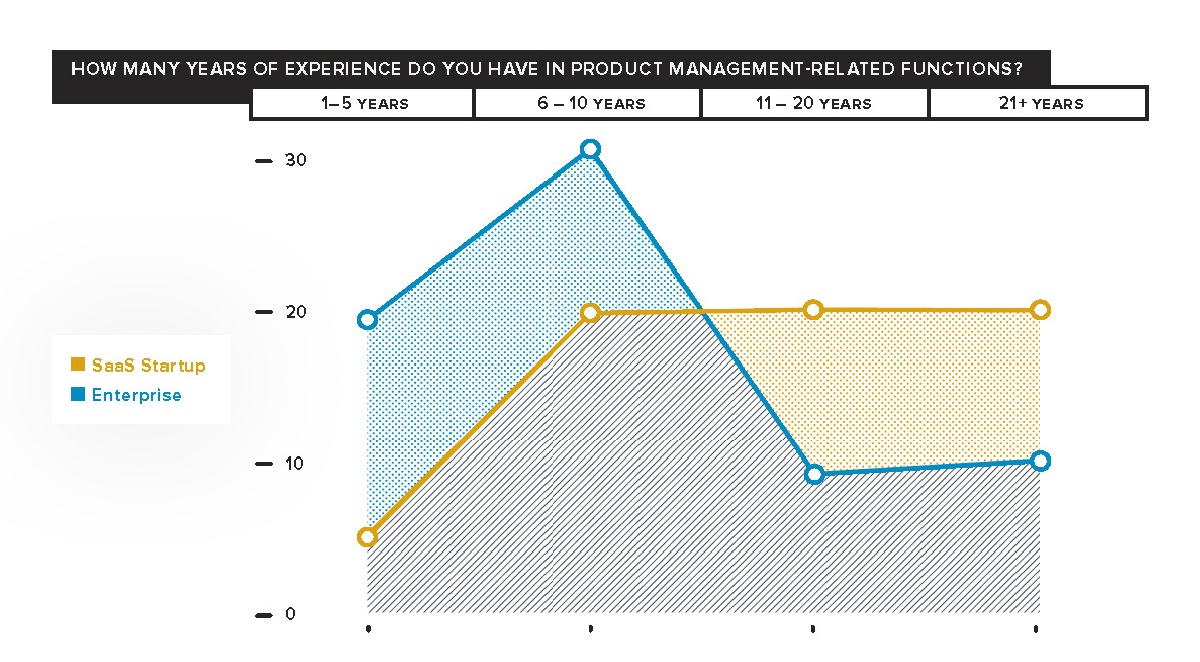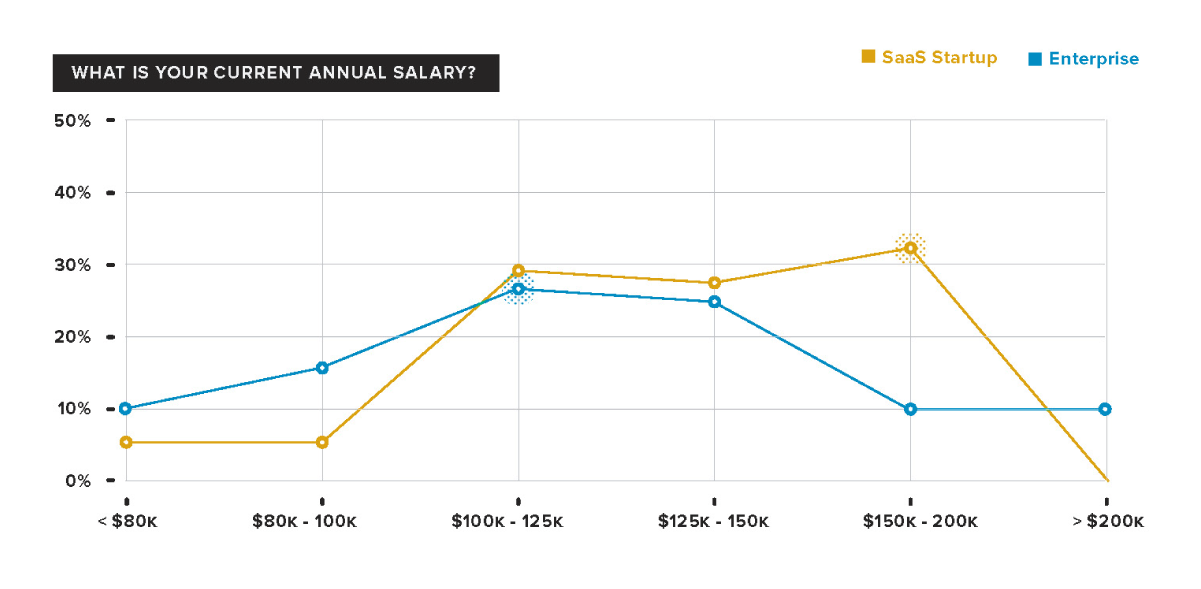Bigger isn’t always better: What enterprises can learn from startups about attracting top product management talent
Traditional wisdom has always held that small companies should learn from, if not try to emulate, international giants. But as we explore in Battle of the Product Managers, Part II: The SaaS Startup vs. The Global Enterprise, bigger doesn’t always mean better. More often than not, it just means different.
A sequel to Battle of the Product Managers, Part I, which explored the differences in product management styles by geography, Part II takes the same formula and applies it to company type/size. Specifically, the guide explores how product managers at SaaS startups (< $100 million in software subscription revenue) differ from product managers at enterprise companies (> $500 million in annual revenue for on-premise or hybrid software, or companies that self-identify as “traditional enterprise”).
One of our primary findings: Although enterprise companies typically have deeper pockets and better name recognition, SaaS startups appear to be doing a better job attracting veteran product management talent. As our survey of 130+ product leaders revealed, 62% of startup product leaders have 10+ years of product management experience, compared to just 28% of enterprise product leaders. So much for the startup “whiz kid” stereotype.
If this statistic has left you scratching your head, don’t worry. We have a theory about how startups have been able to lure these more experienced product leaders away from the big enterprise companies (hint: money). But first, let’s do a deeper dive into how the experience levels of startup PMs and enterprise PMs differ.
SaaS startup vs. enterprise PMs: Who has more experience?

As you can see in the chart above, PMs at SaaS startups are most likely to have between 11 and 20 years of relevant product management experience (32%), while PMs at enterprises are most likely to have between six and ten years of experience (46%). And while this stat alone is interesting, things get even more interesting when you look at the broader data set.
At startups, the second-largest cohort of PMs have a staggering 21+ years of experience (30%). Meanwhile, at enterprise companies, the second-largest cohort of PMs have even less experience than the first, with 27% having just one to five years of experience. (For comparison, a mere 8% of startup PMs have between one and five years of experience).
So, how do we account for this discrepancy? In other words, why are startups so much more successful than their enterprise counterparts at attracting experienced PMs?
The truth is there’s no single answer. But based on what we uncovered in the survey data, we have a hunch that salary plays an important role.
SaaS startup vs. enterprise PMs: Who makes more money?

When you look at the salary distributions above, it becomes clear that SaaS startups are investing more money in attracting talent.
Specifically, PMs at startups are most likely to earn between $150,000 and $200,000 (30%), whereas PMs at enterprise companies are most likely to earn between $100,000 and $125,000 (28%). Meanwhile, the second-largest cohort of startup PMs (29%) make between $100,000 and $125,000, and the third-largest cohort (27%) make between $125,000 and $150,000. Compare this to enterprise companies, where the second-largest cohort of PMs (25%) make between $125,000 and $150,000, and the third-largest cohort (16%) make between $80,000 and $100,000.
The top 3 PM salaries at SaaS startups:
- $150k to $200k (30%)
- $100k to $125k (29%)
- $125k to $150k (27%)
The top 3 PM salaries at enterprise companies:
- $100k to $125k (28%)
- $125k to $150k (25%)
- $80k to $100k (16%)
Of course, this begs the question: Why are startups willing to pay PMs more? One possible explanation: to help offset the inherent risk that comes with joining a startup versus working at a large, established company.
However, all that being said, it’s worth noting that enterprise companies do have more product leaders at the very top of the salary pyramid, with 10% earning more than $200,000. (In contrast, just 2% of product leaders at SaaS startups earn that much.)
But here’s another angle: If the goal of product team hiring is to stockpile experience — rather than hire one highly-paid veteran at the top of the department — then enterprises might want to consider stealing a page from the startup playbook. Full-team thinking may be an advantage for startups.
Grab your copy of Battle of the Product Managers, Part II
For a more in-depth analysis of the key differences and similarities between enterprise and SaaS startup product managers, download a copy of our new e-book.
